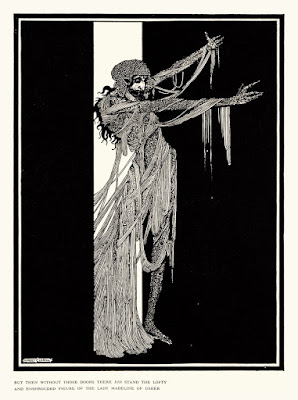The gist of Bishop and Foshay's exchange in chapter 19 was an agreement that implementation of educational tech in schools is not scaling effectively. Foshay asserts that this is a problem with the methodology of how ET is developed. That we are not asking the right questions, considering the classroom as it is, and collaborating with stated educator needs so that what is developed is usable from the perspective of those who we would like to believe it benefits or is effective for. Bishop asserts that the problems start even further back. That there is a failure at the corporate leadership levels to listen to or champion ET development that is mindful and practical and guided by actual classroom experience rather than ideals and irrelevant experience and preferences. Both are calling for a type of activism. Bishop is calling for ID activism that challenges and disrupts organizational culture and norms so that space is opened for the kind of change and exploration that Foshay is advocating for. Foshay is advocating for radical empathy. Rather than taking the route of corporate definitions of success or ideals over lived experiences Foshay says the centering of teacher experience as it stands needs to become the guiding principle of an ID.
I think Chapter 19 connects to Chapter 20 in interesting ways. AI and the robots that house it are likely to be produced and seen at the levels of education that serve the 1%. Public schools may get grants and different funding for bots made by large companies who have had educational access missions in the past (Khan, Google, Amazon, Bill and Melinda Gates Foundation) however, all of these interested parties have agendas. They also limit the scope and narrow the skillsets of education because not all of the products that these companies provide work with the products IDs have access to creating. It creates an ID hierarchy that reflects the hierarchy of where there is money and more academic flexibility and innovation being available. This is not a new phenomenon, but it makes a lot of what Chapter 19 is advocating for seem terribly unattainable at the levels at which it would be most needed.
Mitra's assertion that AI bots will eliminate the need for teachers altogether I don't think is as wildly off at Cate and Hammond push back that it is. I think Mitra touches on something we are already seeing, and will continue to see more and more of, but that it too will be done based on the economic systems that run our country. Kids who can afford it will have access to AI tutors, who will accomplish the ideals of a quality education. Public school kids will continue to have access to different versions of technologies that will give them enough of a taste of what's out there that we are almost sated, but the same cycles of inequity and funneling of who gets access to what privileges and resources will continue. Teachers will adapt, because that is what they have taught themselves to do. Kids will adapt and having a handful of Googbots and Khanmangos will feel like a novel and hopeful experience until they remain about the same equivalency of effective as Chromebooks and Khan Academy are now in the public school setting.
This is not me hating on public school. I deeply appreciate teachers who show up wanting to educate kids and who authentically have passion for that responsibility. I am grateful there is an institution that allows me to pursue some sort of independent life for myself and my children in the form of an occupation while they are kept mostly safe in an environment of their peers. Though I also hate the realities of it all. The Foshay level of questioning the system as it is - stress-testing it to see what it needs to accomplish its aim, and how it's accomplishing it now, and who is being served by it, and who is not - when applied to public education, feels like a bleak and frustrating scene. I know more effective version of similar institutions exist globally. In even the most basic light of that this continued ramping up of expectations that are not met and support ideas that the system seems almost willfully made to keep out starts to feel like an unintentional taunt. Overall, these chapters just read bleak to me. I wish that were not the case. In my responses I may rally, believe change is around the corner, or that it's all not so bad (in present and future). But today the mood is bleak.

Comments
Post a Comment